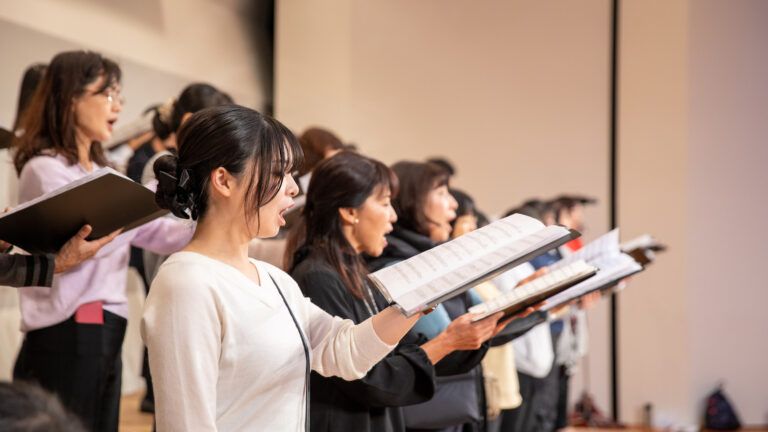Some people pray silently. Some speak their prayers aloud. Some sing—or chant—their prayers. And some do all of the above.
My first attempts at chanting some of my daily prayers were made at a monastery in Kentucky on a prayer retreat about 20 years ago. The monks chanted psalms and prayers many times a day using plainsong, which may be as old as (or older than) the Christian church itself.
Gregorian Chant, which the monks at that monastery use, is a form of plainsong. The chants are simple (most have only four or five notes and little variation in each line) because their purpose is not to achieve musical elegance but prayerful concentration.
Though it felt weird at first, I tried it, chanting very quietly along with the monks. I copied a few of the melodies onto a 4×6 card to take home with me. After a few weeks of experimentation, chanting my prayers—especially my evening prayers—became an extremely helpful part of my prayer life, particularly in four ways:
1) Focus
Chanting helps me to focus on the words I am praying. Because the melody is simple and slow, I don’t have to think about the music but can concentrate on the words the music is helping me to pray. There is a beautiful synthesis between music and words that often produces a focus I don’t achieve when praying silently or even when speaking my prayers aloud. Chanting doesn’t make distraction impossible but it does increase my concentration.
2) Speed
Chanting slows me down. That is a good thing. I tend to rush through my prayers and Bible reading, especially when I encounter a familiar passage or prayer. But chanting helps me to slow down so that the prayer is less likely to escape my lips without engaging my heart.
3) Emphasis
Chant has often directed my attention to a specific word or phrase in a familiar prayer. The rise and fall of a chant’s notes sometimes opens my eyes—and heart—to something I hadn’t previously noted or sufficiently considered.
4) Memory
Almost as soon as I began chanting with the monks at the monastery, I discovered that the psalms and prayers and simple melodies reverberated through my mind and heart for the rest of the day (or until the next “hour” of prayer).
To this day, in fact, I cannot lay my head on my pillow without the tunes and words of Compline (“Our help is in the name of the Lord, the maker of heaven and earth,” “Praise the Father, Son, and Holy Ghost, both now and forever,” “Lord, save us, save us while we are asleep,” “Lord, you now have set your servant free to go in peace”) singing me to sleep.
5) Mood
Chant calms me. Smarter people than I claim that chanting your prayers can lower blood pressure, reduce anxiety and depression, and more. Could be. I just know that chanting my prayers often takes me to a special “place,” an attitude and posture that I don’t often achieve otherwise.
These are just a few benefits I have experienced from chanting some of my prayers. Others could certainly list more. In any case, I encourage you to try it; start with the psalms, chanting line by line (you can find examples of chant melodies on the internet or on CDs from your library…or you can make up a simple tune of your own or imitate melodies you remember from your church background). After a few days or a couple of weeks, I’ll be surprised if you don’t experience some or all of the benefits above.





